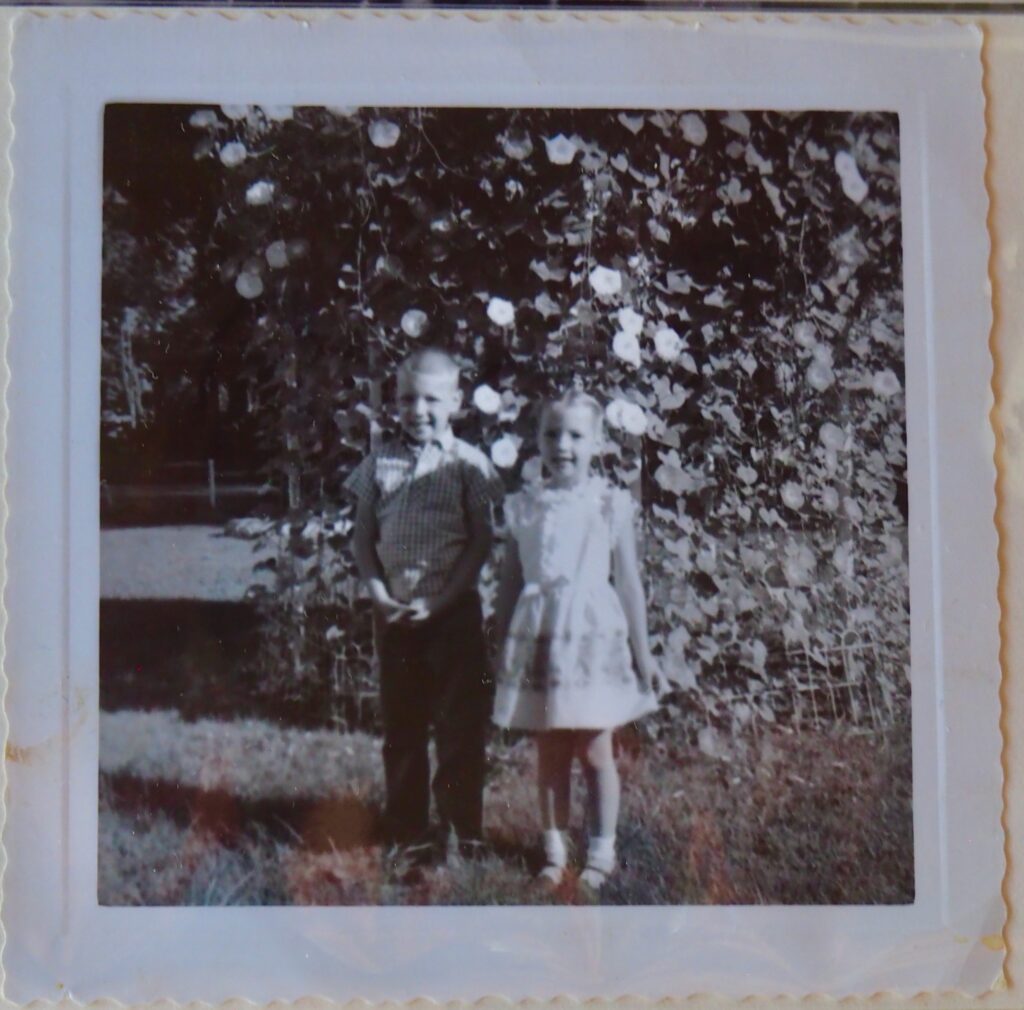
In August 1974, my parents took me to Iowa City for my freshman year at the University of Iowa. It took but two trips from the Dodge station wagon parked on Clinton Street up to 2226 Burge Hall (aka The Zoo), a triple I shared with Dale, a big guy from Bondurant who wanted to be a doctor, and Kevin, a trumpet player from Pleasant Valley who wanted to be a band director. Kevin would accomplish that and even go on to direct ensembles 20+ years later at Iowa before a scandal brought him down. Dale left school after one year. I met both of them that day in 2226 Burge.
I remember profound loneliness walking back into the dorm after my parents pulled away. Only 25 years later did I come close to understanding what they felt, what it was like to leave your first child to academia, on a September afternoon walking from the Bryn Mawr Campus to the Bryn Mawr station, to catch trains back to the Philadelphia airport. Monica’s mom and I had moved her into a triple, and the College had prepared an afternoon of activities that culminated in a clear signal to parents: You Need to Leave Now. So we did, Dawn to her minivan, me to United Airlines. There was then Andrew’s first day at Illinois Wesleyan in 2003 and Paige’s first day at DePaul in 2006. For over a decade, I had a close perspective on college through the eyes of students, my kids, and then it was done. Ever since, I’ve become more distanced from how the world looks to freshmen, whom I’ve taught 40 years, beginning in 1980 at Findlay College, when I was six years older than my students. Freshmen are first-years now, of course.
I think of all this September 14, 2020, the first day of classes at the University of Denver. The parents have long left, having dropped kids strangely into dorms distanced by Covid, half capacity, only Mom or Dad (not both) allowed to visit rooms where they first meet masked classmates, carrying the heavy burden of not getting each other fatally sick.
Professors have struggled all summer to figure how to teach classes partly in person to students whose lips and chins they’ll ever see only on computer screens. We’ve fined and refined online components of courses, planning for the day we’re made to shut down every physical element and move it all to Zoom and Canvas. Students will not chat with us in our offices or over a coffee or in the library book stacks, the library now closed except to a few classes that meet in a big room. We will not linger with colleagues after talks, in receptions, passing one another on the college greens. We will not stop to watch a late afternoon soccer match, listen to a chorus rehearsal, wander through a gallery and be surprised by a student’s watercolor.
I cannot imagine what it would be like to be a first-year student in 2020, and my heart simply goes out to them. Today should be a nervous thrill: their first college classes after a weekend of hanging out with new roommates and classmates, in a new city, cleaved at last from home: homesick, perhaps, but future-forward. But now? It’s well-placed paranoia in a makeshift fragile world that a few weeks’ experiences at other colleges tells them–and their professors–cannot last until too many cases bring everything down.
As a professor, now senior in both senses of the word, I feel a great responsibility to these students and to my younger colleagues, all with years ahead of them. I think of Joan Didion’s poignant essay, “On Going Home,” where she writes in the 1960s of bringing her daughter back to her own childhood house in Sacramento for the baby’s birthday. Didion is flooded with memories incomprehensible to her husband, John Dunn, and certainly to her daughter, Quintana, both of whom will tragically die decades later. Didion writes in dust on window sills and desperately thinks of the birthday gift she would like to give but of course cannot: “I want to give her home.”
I wish I could give my students college.
My first day at college came a couple of weeks after Richard Nixon finally resigned, confronted by a congress that could still act responsibly. My first night at college, I found myself at a bar for the first time in my life, drinking my first beer, a Pabst Blue Ribbon. The legal drinking age in Iowa was 18 in those days, and while I’d been 18 a month, I was a shy “nice” kid. Ah, the puritanical folly. Bill Davis, who lived down the hall and would become one of three longtime roommates, took me downtown, around the corner from Joe’s place to a bar long gone and whose name I can’t recall. With wide worldly knowledge, Bill told the bartender, “A Blue,” and I of course copied. I clearly remember thinking, “So this is college. What in the hell are you doing?”